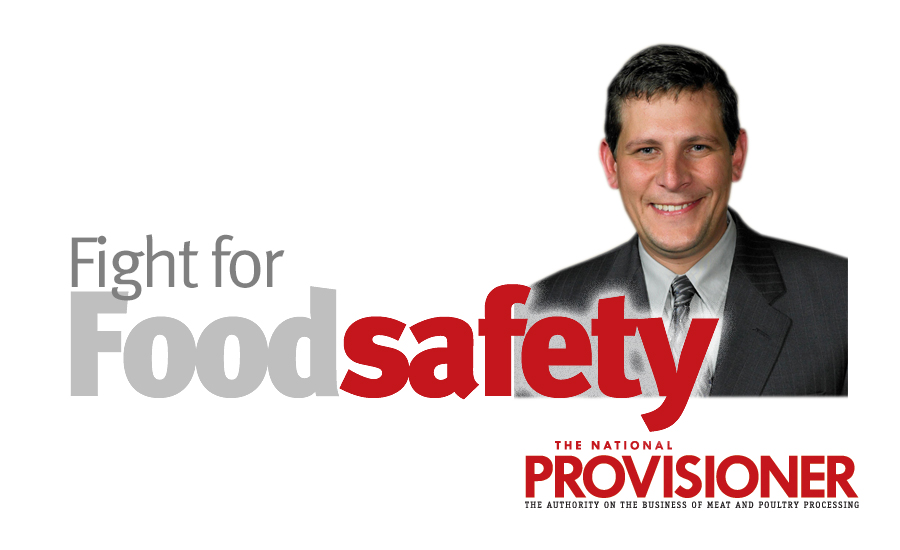Zero tolerance in raw pet food: Is your T-Bone next?

For as long as the food industry has been processing raw animal products, many of those products could be sold to consumers despite the presence of many pathogens. Raw animal products such as beef and poultry, for instance, are not adulterated if they contain Listeria or Salmonella. Although ground beef containing E. coli O157:H7 is adulterated, intact beef containing the bacteria is safe and wholesome and can be legally sold. This set of rules developed and enforced by FSIS has worked well, and for decades has allowed the meat industry provide safe and quality products to consumers throughout the nation.
Recent actions by FDA, however, may question and even infringe upon long-standing FSIS policy. Indeed, FDA has announced that it will begin considering any pet food containing pathogens to be adulterated, regardless of the type of pet food or pathogen. Thus, the new FDA policy will apply with equal force to both processed and raw pet foods. In turn, this means that although a processor could legally ship a T-Bone steak containing Listeria, Salmonella or E. coli O157:H7 for human consumption, if the processor puts the T-Bone in a bag labeled “pet food,” according to FDA, it becomes illegal to sell.
This new policy should serve as a warning to us all. The question all processors must now ask is: If FDA is making it illegal to sell raw meat containing known pathogens for pets, will FSIS follow suit and make it illegal to sell raw meat containing known pathogens for humans?
Because FDA and FSIS are tasked to protect the public by regulating the safety of foods, it is no secret that the agencies often borrow from (or even attempt to outpace) each other when developing new policy. If confronted with the new rules being enforced by FDA, FSIS may begin to feel political pressure to change its own position. How would FSIS respond, for instance, if it was publicly criticized because FDA’s rules make pet food safer than FSIS rules make human food? I raise this not because I agree with FDA, but rather to warn you about new regulatory pressure we may soon face.
With that said, I truly hope reasonable minds prevail. FDA’s treatment of raw pet foods seems, quite frankly, illogical. FDA itself reports that dogs rarely get sick from Listeria, and that there have only been six reported cases of listeriosis in dogs between 1947 and 2000. Moreover, a large percentage of dogs test positive for Listeria and Salmonella regardless. And, there is no greater risk from handling raw ground beef containing Salmonella and eating your burger medium, than there is serving the identical product to your dog.
Nevertheless, at the moment, FDA does not seem interested in science and reason. FDA is taking raw T-Bones away from your pet — let’s hope its recent actions don’t take the same T-Bones away from you. NP
Looking for a reprint of this article?
From high-res PDFs to custom plaques, order your copy today!






